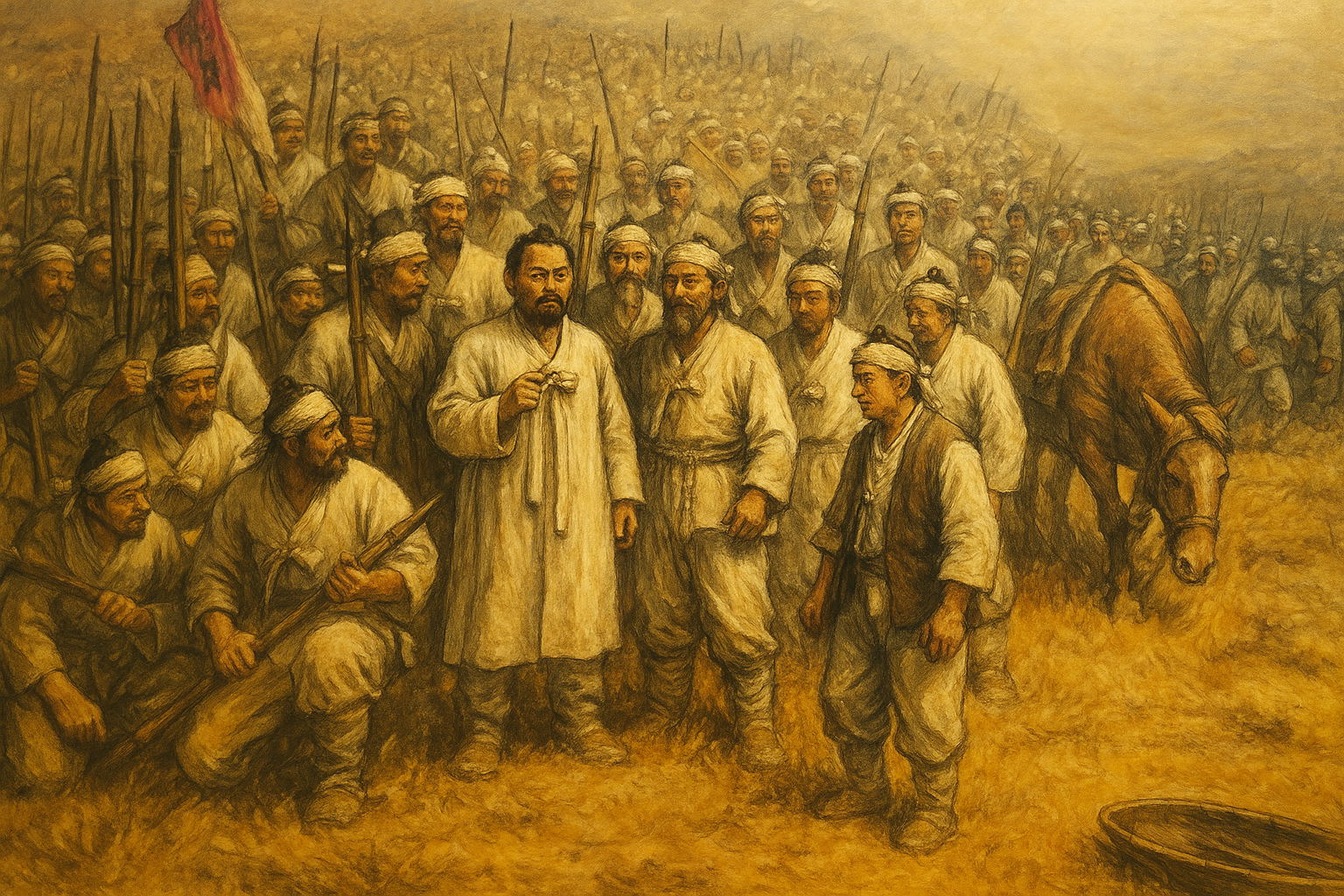— A Korean Tale of White Robes and Bamboo Spears
Long ago, in the wide plains of what is now South Jeolla Province,
there stood a humble hill — unnamed, unremarkable, and often overlooked.
But to the weary farmers who toiled in its shadow, it was a place where the wind paused,
and sighs from the fields gently settled.
In the winter of 1894, change began to stir.
In the district of Gobu, corrupt officials had once again taken the rice and harvests
that barely fed the mouths of the poor.
But this time, a voice rose against them.
“We are not beasts — we are people.
And people are heaven itself.”
The man who spoke those words was Jeon Bong-jun,
a name now etched in Korean history as Nokdu Janggun, the Green Bean General.
His cry for justice spread like wildfire.
From village to village, thousands of farmers took up bamboo —
not to wage war, but to hold high their dignity.
They sharpened their bamboo into spears, jukchang,
and gathered in white robes, the traditional clothing of the Korean people —
a symbol of purity, peace, and resilience.
They came to that unnamed hill in such numbers
that when they sat, the spears pointed skyward like a forest —
and the people called it Juksan, the Mountain of Bamboo Spears.
And when they stood,
their white garments rippled across the hill like snow —
and they called it Baeksan, the White Mountain.
From that day on,
this once-forgotten mound bore two names,
each one whispered by the wind with the weight of history.
Juksan, born of the people’s will.
Baeksan, dressed in the robes of justice.
And though the bamboo has long since withered,
the story still stands —
of a mountain made not of stone,
but of unity, courage,
and the voices of those who rose together.
🌍 Cultural Notes for Readers:
- Baeksan (백산): Literally means “white mountain,” named after the sea of white robes worn by peasant soldiers.
- Juksan (죽산): “Bamboo mountain,” named after the forest of bamboo spears raised by the farmers.
- Jeon Bong-jun (전봉준): Leader of the 1894 Donghak Peasant Revolution, a symbol of resistance and justice in Korean history.
- White robes (baek-ui): Traditional Korean attire symbolizing purity and the identity of Korea as the “people of white clothing” (백의민족).
- Bamboo spears (jukchang): Handmade weapons symbolizing grassroots resistance by those without swords or guns.

답글 남기기